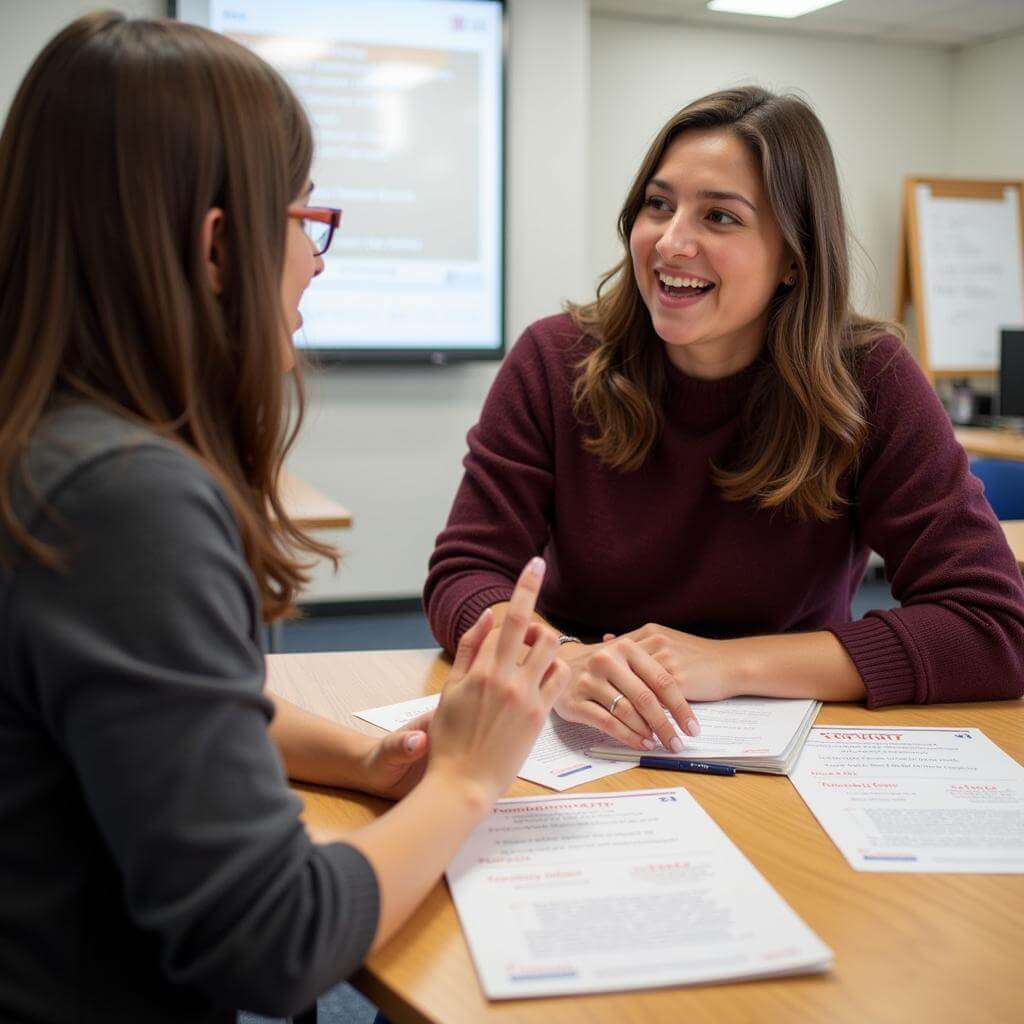Improving your grammar skills is crucial for IELTS success, and daily practice is the key to achieving this goal. By incorporating regular grammar exercises into your study routine, you can significantly enhance your performance across all sections of the IELTS exam. Let’s explore effective strategies for improving grammar with daily practice, tailored specifically for IELTS preparation.
Nội dung bài viết
- Why Daily Grammar Practice Matters for IELTS
- Effective Strategies for Daily Grammar Practice
- 1. Create a Structured Study Plan
- 2. Utilize IELTS-Specific Grammar Resources
- 3. Incorporate Real-Life Materials
- 4. Practice Active Grammar Usage
- 5. Use Technology to Your Advantage
- 6. Focus on Error Correction
- Integrating Grammar Practice into IELTS Skills
- Writing
- Speaking
- Reading
- Listening
- Expert Tips for Maximizing Your Daily Grammar Practice
- Tracking Your Progress
- Overcoming Common Challenges
- Conclusion
- FAQs
Why Daily Grammar Practice Matters for IELTS
Daily grammar practice is essential for IELTS candidates for several reasons:
- Consistency: Regular practice helps reinforce grammatical rules and structures.
- Automaticity: Frequent exposure leads to more natural and accurate language use.
- Confidence: As your grammar improves, your overall confidence in using English increases.
- Exam readiness: Consistent practice prepares you for the grammatical challenges in all IELTS sections.
How to improve IELTS writing grammar accuracy is a crucial aspect of your preparation, and daily practice plays a significant role in achieving this goal.
Effective Strategies for Daily Grammar Practice
1. Create a Structured Study Plan
Develop a daily grammar practice routine that fits your schedule:
- Set aside 15-30 minutes each day for focused grammar exercises.
- Alternate between different grammar topics to maintain variety and interest.
- Use a grammar textbook or online resources to guide your practice.
2. Utilize IELTS-Specific Grammar Resources
Focus on grammar points that are particularly relevant to the IELTS exam:
- Study complex sentence structures for the Writing and Speaking sections.
- Practice identifying grammatical errors in context for the Reading section.
- Work on verb tenses, conditionals, and modal verbs frequently used in IELTS tasks.
3. Incorporate Real-Life Materials
Expose yourself to authentic English grammar usage:
- Read news articles, academic journals, and literary works.
- Listen to podcasts and watch English-language videos with subtitles.
- Analyze the grammar used in these materials and try to apply it in your own practice.
Improving speed for reading comprehension can also benefit from this approach, as you’ll become more familiar with complex grammatical structures.
4. Practice Active Grammar Usage
Actively apply the grammar you’re learning:
- Write short paragraphs or essays using specific grammatical structures.
- Engage in speaking exercises where you consciously use target grammar points.
- Keep a grammar journal to track your progress and note areas for improvement.
 Daily Grammar Practice Journal for IELTS Preparation
Daily Grammar Practice Journal for IELTS Preparation
5. Use Technology to Your Advantage
Leverage digital tools for grammar practice:
- Install grammar checker apps to identify and correct errors in your writing.
- Use online quizzes and interactive exercises for immediate feedback.
- Join online IELTS forums to discuss grammar questions with fellow learners.
6. Focus on Error Correction
Develop your ability to identify and correct grammatical errors:
- Practice with IELTS-style error correction exercises.
- Review your own writing and try to spot and fix grammatical mistakes.
- Ask a study partner or tutor to provide feedback on your grammar usage.
Integrating Grammar Practice into IELTS Skills
Writing
- Before starting your daily writing practice, review a specific grammar point.
- Incorporate the grammar focus into your Task 1 and Task 2 responses.
- After writing, use a checklist to ensure you’ve applied the target grammar correctly.
Improving task 2 grammar accuracy requires consistent practice and attention to detail in your writing exercises.
Speaking
- Choose a grammar structure to focus on during your speaking practice sessions.
- Record yourself speaking and analyze your grammar usage.
- Practice using complex grammatical structures in your responses to common IELTS speaking topics.
Improving fluency with speaking partners can be enhanced by consciously applying newly learned grammar structures in your conversations.
Reading
- Identify and analyze complex grammatical structures in IELTS reading passages.
- Practice paraphrasing sentences from the text using different grammatical structures.
- Create grammar-focused questions based on the reading material to test your understanding.
Listening
- Pay attention to the grammar used in IELTS listening recordings.
- Take notes on interesting or complex grammatical structures you hear.
- Practice using these structures in your own speaking and writing exercises.
Expert Tips for Maximizing Your Daily Grammar Practice
Dr. Emma Thompson, an IELTS preparation specialist with over 15 years of experience, shares her insights:
“Consistency is key in grammar improvement. I advise my students to treat daily grammar practice like brushing their teeth – it should be a non-negotiable part of their routine.”
She also emphasizes the importance of application:
“Don’t just memorize rules. Apply what you learn immediately in context. Write a paragraph, have a conversation, or create example sentences. This active use cements the grammar in your long-term memory.”
Tracking Your Progress
Monitor your grammar improvement to stay motivated:
- Keep a log of the grammar points you’ve studied and mastered.
- Regularly take practice tests to assess your overall grammar proficiency.
- Review your past writing samples to see how your grammar has improved over time.
- Set specific grammar-related goals for each week of your IELTS preparation.
Overcoming Common Challenges
- Boredom: Vary your practice methods and materials to keep things interesting.
- Plateaus: If you feel stuck, focus on applying grammar in new contexts or seek more challenging exercises.
- Overwhelm: Break down complex grammar topics into smaller, manageable parts for daily practice.
- Time constraints: Even 10 minutes of focused practice can make a difference; consistency is more important than duration.
Conclusion
Improving grammar with daily practice is a powerful strategy for IELTS success. By incorporating structured, consistent grammar exercises into your study routine, you can significantly enhance your performance across all sections of the exam. Remember, the key to mastering grammar is not just learning rules, but actively applying them in your everyday English usage. Stay committed to your daily practice, track your progress, and watch your IELTS scores improve. With dedication and the right approach, you’ll be well on your way to achieving your desired IELTS score.
FAQs
-
How long should I spend on daily grammar practice for IELTS?
Aim for 15-30 minutes of focused grammar practice each day. Consistency is more important than lengthy sessions. -
What are the most important grammar topics to focus on for IELTS?
Concentrate on verb tenses, conditionals, modal verbs, relative clauses, and sentence structures commonly used in academic and formal contexts. -
Can I improve my grammar by just reading and listening to English content?
While exposure is beneficial, active practice and application of grammar rules are crucial for significant improvement. Combine passive exposure with targeted exercises for best results. -
How can I make grammar practice more engaging and less tedious?
Use varied resources like apps, games, and real-life materials. Set specific goals and reward yourself for achieving them to maintain motivation. -
Is it better to focus on one grammar topic per day or mix different topics?
A mix of both approaches can be effective. Spend a few days focusing on one topic, then switch to mixed practice to reinforce multiple concepts simultaneously. -
How can I apply grammar practice to improve my IELTS speaking skills?
Improving intonation for natural speech goes hand in hand with grammar practice. Focus on using correct grammar structures while working on your pronunciation and intonation. -
How long does it typically take to see improvement in grammar through daily practice?
With consistent daily practice, you may start noticing improvements within 2-4 weeks. However, significant, lasting changes usually become apparent after 2-3 months of dedicated practice.


